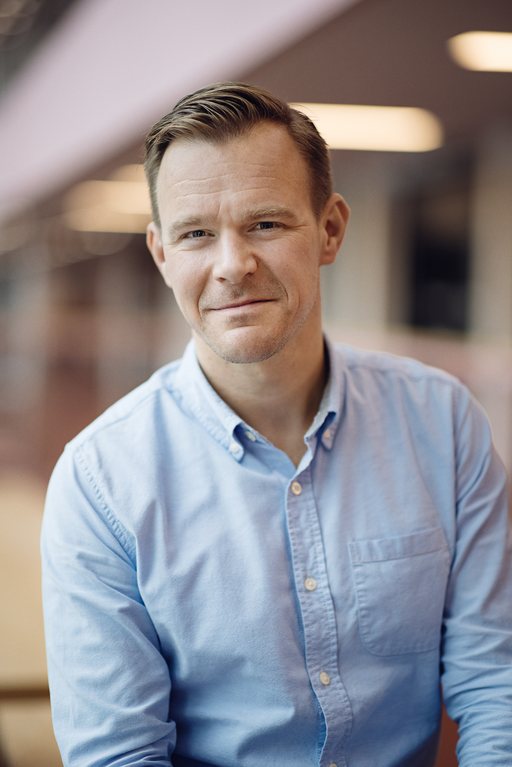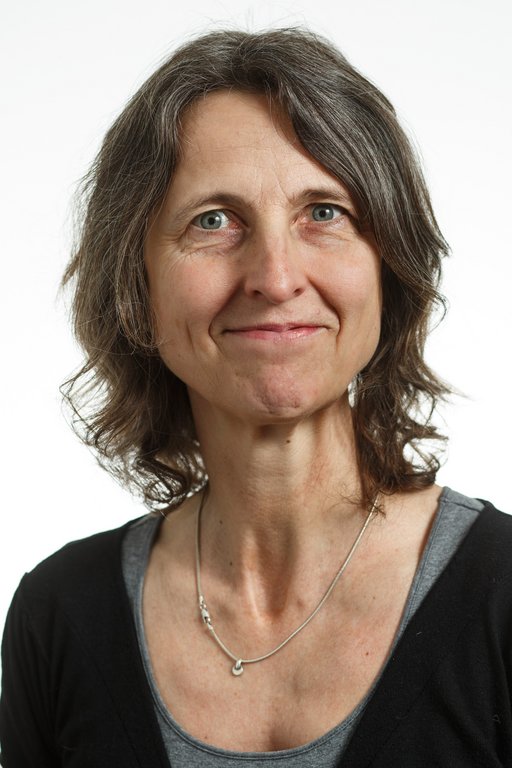"We're basically working for an even better university"
Do you want insight and influence? Do you want to help ensure a high academic standard at Health? The elections for the Academic Council will take place in November, and as a member you can help influence the direction of the faculty in a number of important areas.


According to Professor Søren Dinesen Østergaard from the Department of Clinical Medicine, no other body at Aarhus University measures up to the Academic Council at Health in terms of exerting influence as an ordinary staff representative.
"I’ve been a member of the Academic Council for four years, and I’ll run again in the autumn. Over the years, I’ve been on a lot of different councils, working groups and boards, but rarely have I experienced having so much influence on matters I think are important," he says.
"We do much more than just tick boxes"
The Academic Council at Health is an advisory body reporting directly to the dean, and the council regularly discusses matters relating to research, education and collaboration with a view to securing staff and student co-determination.
The council is broadly represented, with seats for academic staff from all departments, technical/administrative staff and students. All three groups are up for election in November.
Clinical Professor Tine Brink Henriksen from the Department of Clinical Medicine has been a member of the Academic Council for about five years, and she is currently the chair of the council. In this position, her task is to pass on discussions from the Academic Council at Health to the chairs of the other academic councils, which report to the Aarhus University Board and Rector Brian Bech Nielsen.
"I was a bit annoyed that there were so few candidates for such an important body, so I decided to do something about it myself. The Academic Council is close to the most important academic decisions at the university, and as chair I’m working hard to ensure that the topics and themes we bring to the table are also important to employees," says Tine Brink Henriksen.
The Academic Council at Health largely decides which topics it wants to deal with. There are some compulsory tasks, such as participating in appointment committees, awarding degrees on behalf of the Dean's Office and overseeing the university's budget. But according to Chair Tine Brink Henriksen, it is not just there to tick boxes.
"The debate on authorship of scientific articles is a very specific example of a topic taking up much of our time right now. There are guidelines for good scientific practice, but apparently they’re not good or detailed enough to prevent controversies such as #pleasedontstealmywork, where a group of students felt that a supervisor took credit for their work. Our job is to clarify all sides of such a discussion, so that it ends up in concrete and tangible proposals and tools," says Tine Brink Henriksen.
Søren Dinesen Østergaard also highlights the debate on authorship as a specific area where he believes that the Academic Council can make a difference.
"I think the debate on authorship of scientific articles is a very important issue. It's very important to me that young and future researchers are treated properly in this and other contexts, and the Academic Council gives me a channel to discuss this issue at a level, where it can hopefully lead to actual changes," he says.
About the Academic Council
- The Academic Council is an advisory body. It advises the dean on matters relating to research, education and collaboration, and helps influence the direction of the faculty.
- For example, the council advises the dean on the strategic aspects of the faculty, the faculty's budget and budgetary principles, strategic research and education, plans for knowledge exchange, as well as quality assurance and development of the faculty's research environment, PhD degree programmes and research-based teaching.
- The Academic Council also sets up appointment committees when associate professors and professors are to be appointed, and it awards PhD and doctoral degrees.
- The Academic Council generally meets six times a year.
- The Academic Council consists of representatives of academic staff from all five departments, technical/administrative staff, PhD students and other students.
- Clinical Professor Tine Brink Henriksen is the chair of the Academic Council at Health. The deputy chair is Dean Anne-Mette Hvas.
- Student members are usually elected for a one-year period, while PhD students are elected for two years at a time. Academic staff and technical/administrative staff are elected for four years at a time.
- In November 2023, all staff groups are up for election to the Academic Council in connection with the university elections at AU on 13-16 November.
Read more about the Academic Council at Health on the council's website.
Also, read more about the university elections on Aarhus University's staff page: https://medarbejdere.au.dk/strategi/universitetsvalg.
A guide on how to stand for election is available on the Election Secretariat's website.
Both insight and influence
The Academic Council meets six times a year, and there are correspondence and decision processes between meetings via email. Furthermore, the members of the council are responsible for bringing issues to and from their colleagues, and for drawing attention to the issues addressed by the Academic Council.
According to Søren Dinesen Østergaard, the time spent in the Academic Council is well spent, and personally he has gained both insight and influence on a wide range of important areas.
"The Academic Council has given me a completely different understanding of the faculty, what challenges employees are facing at different departments, and the faculty's budget. Compared to how much you gain from it and how much influence and insight you have, the time spent is very reasonable and definitely manageable," says Søren Dinesen Østergaard.
Chair Tine Brink Henriksen hopes that as many people as possible will get involved in the council and make use of their democratic opportunities by voting or standing for election in November.
"Management listens to us, and the Academic Council is perceived as an active partner in the university's development, operations and academic direction, so there is much to be gained from having a broad representation of employees," says Tine Brink Henriksen, and she continues:
"We're basically working for an even better university. Wrong decisions regarding research practice or prioritisation of funding can have consequences for research quality, work environment and job satisfaction on many levels. So I hope that as many people as possible will get involved in the work of the council and create positive change."
Contact
Clinical Professor and Chair of the Academic Council at Health Tine Brink Henriksen
Aarhus University, Department of Clinical Medicine and
Aarhus University Hospital, Department of Paediatrics and Adolescent Medicine
Telephone: (+45) 26 83 21 79
Mail: tine.brink.henriksen@clin.au.dk
Professor and member of the Academic Council at Health Søren Dinesen Østergaard
Aarhus University, Department of Clinical Medicine
Mobile: (+45) 61 28 27 53
Email: sdo@clin.au.dk